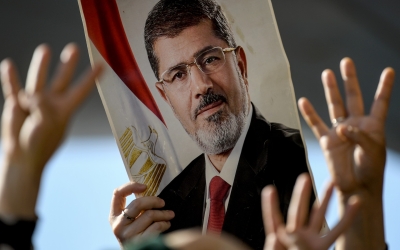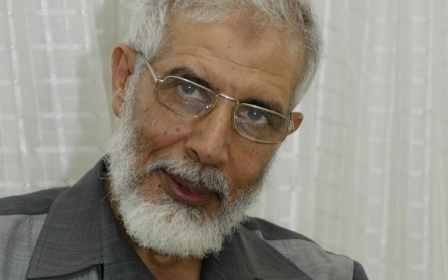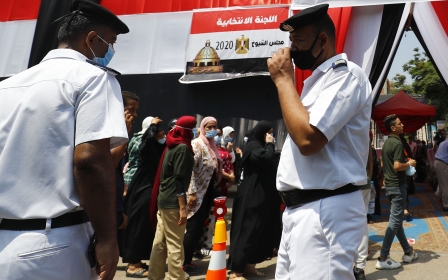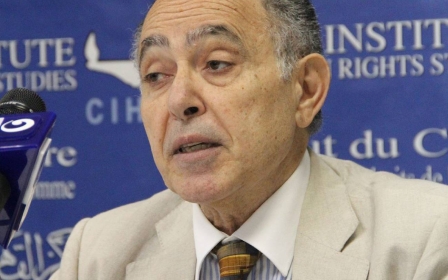Egyptian activist dies in 'Scorpion' prison after 'deliberate medical negligence'
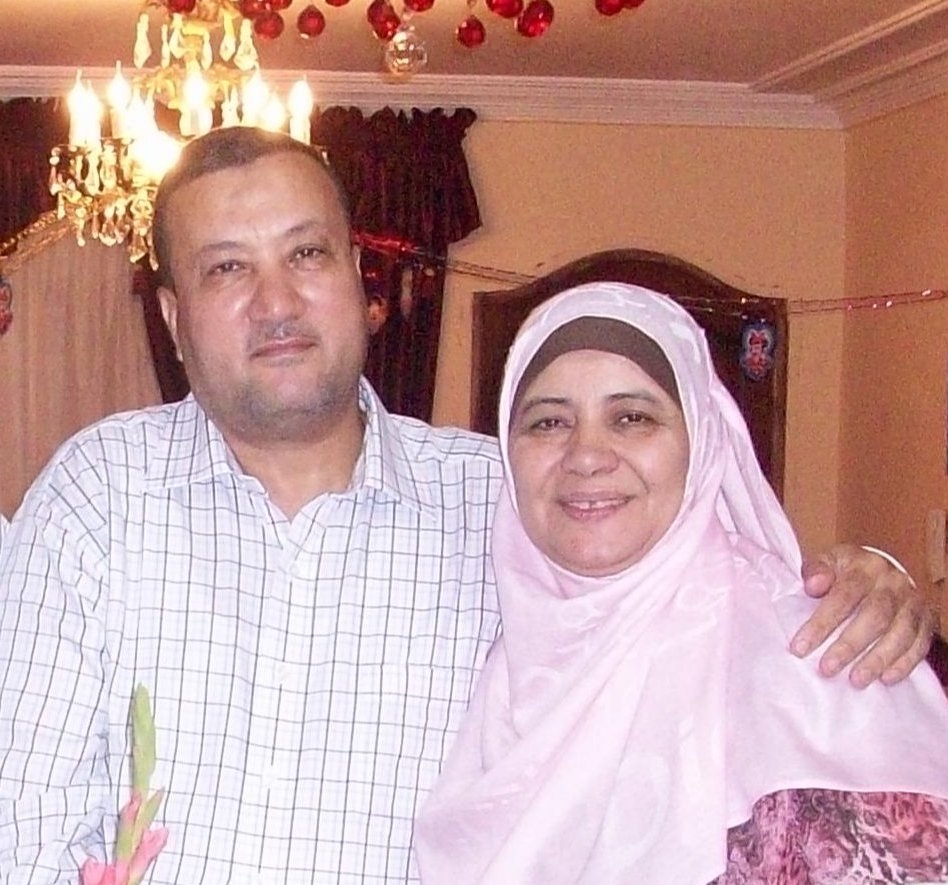
Egyptian activist Ahmed Abdrabbu died inside Egypt's notorious Tora Prison on Wednesday, as a result of "deliberate medical negligence", a rights group has said.
Ahmed Mefreh, the director of the Geneva-based Committee for Justice (CFJ), told Middle East Eye that Abdrabbu suffered from a number of chronic illnesses, including acute kidney failure, which had developed amid unsanitary conditions at the prison.
"Preliminary information shows that he died because of deliberate medical negligence in jail," Mefreh said.
"For nearly two years, he has been held in solitary confinement, in extremely cruel conditions, including denial of medical care by prison officials."
The Tora maximum security prison, also known as "the Scorpion", has been repeatedly denounced by rights groups and described as "degrading" by Human Rights Watch.
New MEE newsletter: Jerusalem Dispatch
Sign up to get the latest insights and analysis on Israel-Palestine, alongside Turkey Unpacked and other MEE newsletters
"Authorities there have denied inmates contact with their families or lawyers for months at a time, held them in degrading conditions without beds, mattresses or basic hygienic items, humiliated, beaten, and confined them for weeks in cramped 'discipline' cells - treatment that probably amounted to torture in some cases," HRW said in a report in 2016.
According to Abdrabbu's family, the publisher was arrested on 23 December 2018 at Cairo International Airport and was later charged with "membership in a terrorist organisation" and working to "undermine the constitution", accusations commonly used by Egyptian authorities against opponents of the government of President Abdel Fattah el-Sisi.
His wife, who was with him at the time, was released in June 2019 and is currently serving parole, his daughter Nusaiba wrote on Twitter.
According to Mohamed Soltan, an Egyptian-American human rights advocate, Abdrabbu's daughter, a US citizen, had met with several US State Department officials as well as members of Congress to advocate for his release.
"Waking up to news like this every day is becoming the new norm and it's not ok. There are at least 60,000 political prisoners (I have 7 family members) in Egypt and nearing 1000 deaths in prison," Soltan wrote on Twitter.
"We can't forget those in prison. Something has to change. This is all too much!"
MEE contacted the State Department for comment on Abdrabbu's case but had received no reply by the time of publication.
Since coming to power in July 2013, following a military coup against the country's first democratically elected president, Sisi has fiercely suppressed dissent.
Tens of thousands of people have been arrested, many of them critics, writers, journalists, human rights defenders and peaceful protesters. Thousands have been jailed without trial under Egypt's abusive pretrial detention system.
According to Mehreh's CFJ, which tracks deaths in Egyptian prisons, including those as a result of Covid-19, almost 1,000 prisoners have died in custody since July 2013.
The majority of those deaths were because of medical negligence, Mefreh told MEE.
In its biannual report, CFJ documented the deaths of 51 prisoners as a result of denial of medical care in detention facilities during the first half of 2020, including 17 people who died of Covid-19.
Those whose deaths were attributed to medical negligence in recent years include former President Mohamed Morsi, Egyptian-American prisoner Mustafa Kassem, film director Shadi Habash, and former Muslim Brotherhood MP Essam El-Erian.
Middle East Eye delivers independent and unrivalled coverage and analysis of the Middle East, North Africa and beyond. To learn more about republishing this content and the associated fees, please fill out this form. More about MEE can be found here.


